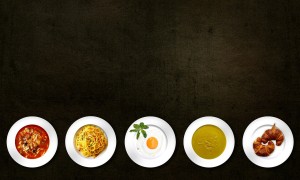Food research is a kind of extreme sport. For one thing, it seems to have more than its share of converts whose enthusiasm for what they do borders on the evangelical.
But most of all, food research is risky. Its intellectual terrain is seismically volatile and deep hidden chasms await the careless at every step. Peaks of euphoric discovery seem always to be followed by bottomless uncertainty and confusion.
Perhaps I exaggerate, but I can think of no other area of enquiry that produces and destroys so many orthodoxies, or where common sense ideas turn to chimera with such regularity.
George Johnson, the American science writer, recently recounted the curious example of food research and cancer. Johnson recalls that by 1997 a growing consensus had emerged amongst experts that diets rich in fruit and vegetables could reduce cancer incidence by up to 20%.
A mere ten years later, the dream of a fruit and veg led war on cancer was all but extinguished. As so often happens in the health sciences, a mixture of factors – hubris, ambition, financial self-interest, naïve optimism – tricked a very large number of intelligent people into believing something that existing data simply did not show.
It was a classic case of people seeing what they believed, rather than believing what they saw. Nonetheless, nutritional science has now largely abandoned its interest in cancer and moved on.
In a similar vein, Johnson says that belief in the protective effect of diets low in fat and high in dietary fibre is crumbling. Earlier “positive” findings have simply not been replicated. In fact, it appears that following mainstream dietary advice will make a miniscule difference, if any, to your chance of getting cancer.
The last five years have also seen a bewildering list of nutritional sacred cows bite the dust. It’s difficult to know where to begin but I was particularly struck by two recent examples. It turns out that, contrary to a quite long-standing orthodoxy, children who are breast-fed are no more likely to avoid becoming overweight or obese later in life than children who are not breast-fed. Likewise, the idea that eating breakfast – rather than skipping it – reduces your risk of becoming overweight or obese appears to have been consigned to history.
It has also been interesting to see the way that research into the link between childhood obesity and “junk food” consistently throws up counter-intuitive findings. Much as we might assume that, say, the consumption of sugary drinks and the location of fast-food outlets has a direct impact on childhood obesity, study after study casts doubt on any direct or straightforward connection.
Of course, the possibility always exists that these ideas will be resuscitated by new findings. But this is my point or, more accurately, my question: why does nutritional science swing so violently from “truth” to “truth”?
I don’t have an answer to this question but there a couple of things I think are worth saying. First, our modern preoccupation with bodyweight is surely playing a role. Obesity researchers are acutely aware of the criticism levelled at them that their research has produced very little knowledge that leads to effective anti-obesity policies and interventions. Coupled with the crisis rhetoric that often frames discussion about obesity, there are obvious and lucrative incentives for food researchers to claim – often prematurely – that they have “discovered” a part of the solution.
Interestingly though, on the other side of the bodyweight equation – physical activity – we have a very different situation. Knowledge about the kinds or amount of exercise that we should do, while not completely static, has changed very little over time. Experts generally say the same thing they have been saying for a long time: we should try to exercise a little bit as regularly as we can.
In other words, there’s something about food knowledge which makes it even more volatile, uncertain and faddish than other areas of study. We are not simply talking here about the general winds of intellectual fashion that affect all fields of research. Something else is going on.
Thinking about these issues, I have come to a slightly paradoxical conclusion. Talking recently in an Australian interview about her novel Big Brother, author Lionel Shriver expressed a view that I share; we have become much too preoccupied with food and that we need to find ways to lower the intensity our feelings, both positive and negative, about food. As well as demonising “bad” food, we have turned “good” food into a weird mixture of pornography, high art, religion and status symbol. Why is it that we seem unable to treat food like the hum-drum daily matter that it mostly is?
At the same time, food is fascinating and it will always be something worth studying and thinking about. My fascination is concerned with why food knowledge has become so prone to exaggerated, unfounded and premature scientific claims. There will, of course, be those who blame the media, cookbooks and celebrity chefs. But this is a mistake. Following the ups and downs of scientific nutrition, as it is played out in the pages of academic journals, has for me been a dizzying ride and there are few signs that the ride will be ending any time soon.
